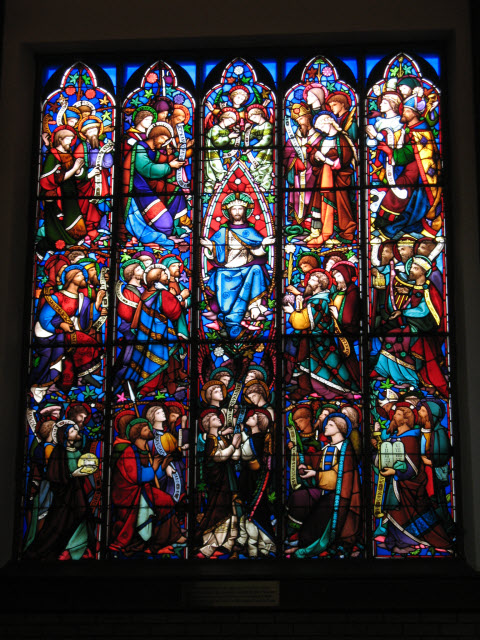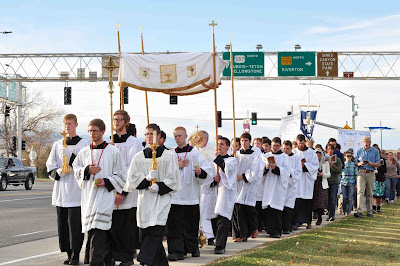
stained glass window in the church of
All Saints, Clapham Park, London
Today’s hymn from Sing Praise is ‘Here from all nations’ by Christopher Idle. It’s continuing a series of hymns for the All Saints season.
Unlike some of the others we’ve sung this week, this one takes the traditional view of ‘saints’ as meaning those disciples of Christ who have suffered persecution or martyrdom and are now in heaven. This is clear from many phrases in the hymn: ‘These have come out of the hardest oppression’, ‘Gone is their thirst and no more shall they hunger’, ‘sun shall not pain them, no burning shall torture’, ‘gone is their grief and their trials are over, God wipes away every tear from their eyes’.
The reward of these long-suffering saints is, first of all, the very opportunity to be with the ‘countless crowd’ adoring God in his majesty, serving him in his Temple. Jesus shall be with them, as shepherd and guide, leading them to living water (echoes of Psalm 23). The hymn concludes with a paraphrase of the song of adoration of the saints from the Book of Revelation.
The image is of the joy of worship and the comfort of food and drink, contrasting with the pain, fear and often hunger of persecution in this life. Although the martyrs are at the heart of this, we could perhaps extend our thoughts and prayers to the memory of those who for the sake of Christ have lived selflessly caring for others with no thought of their own comfort and pleasure.
